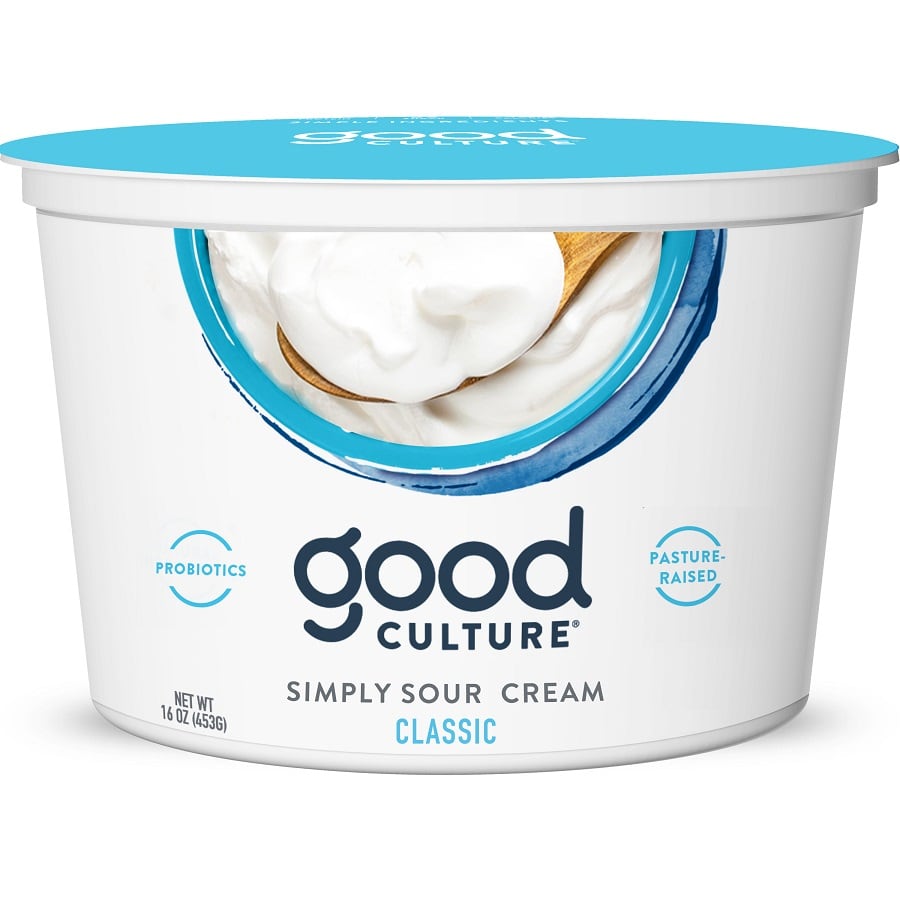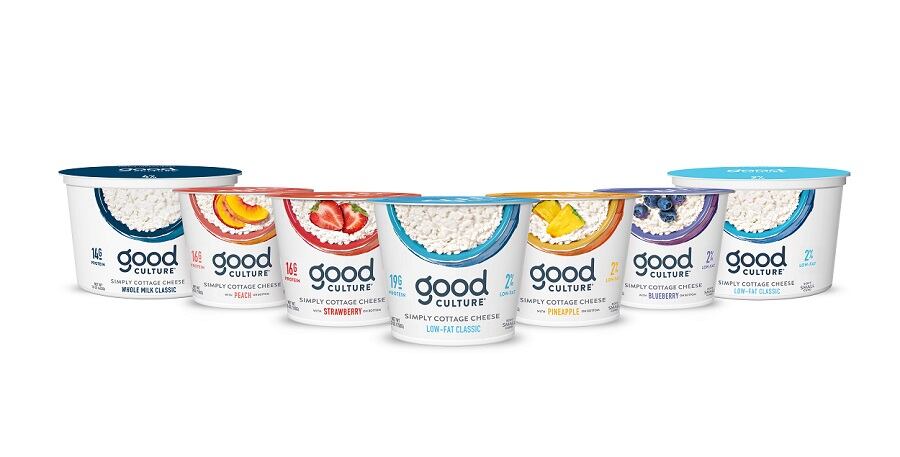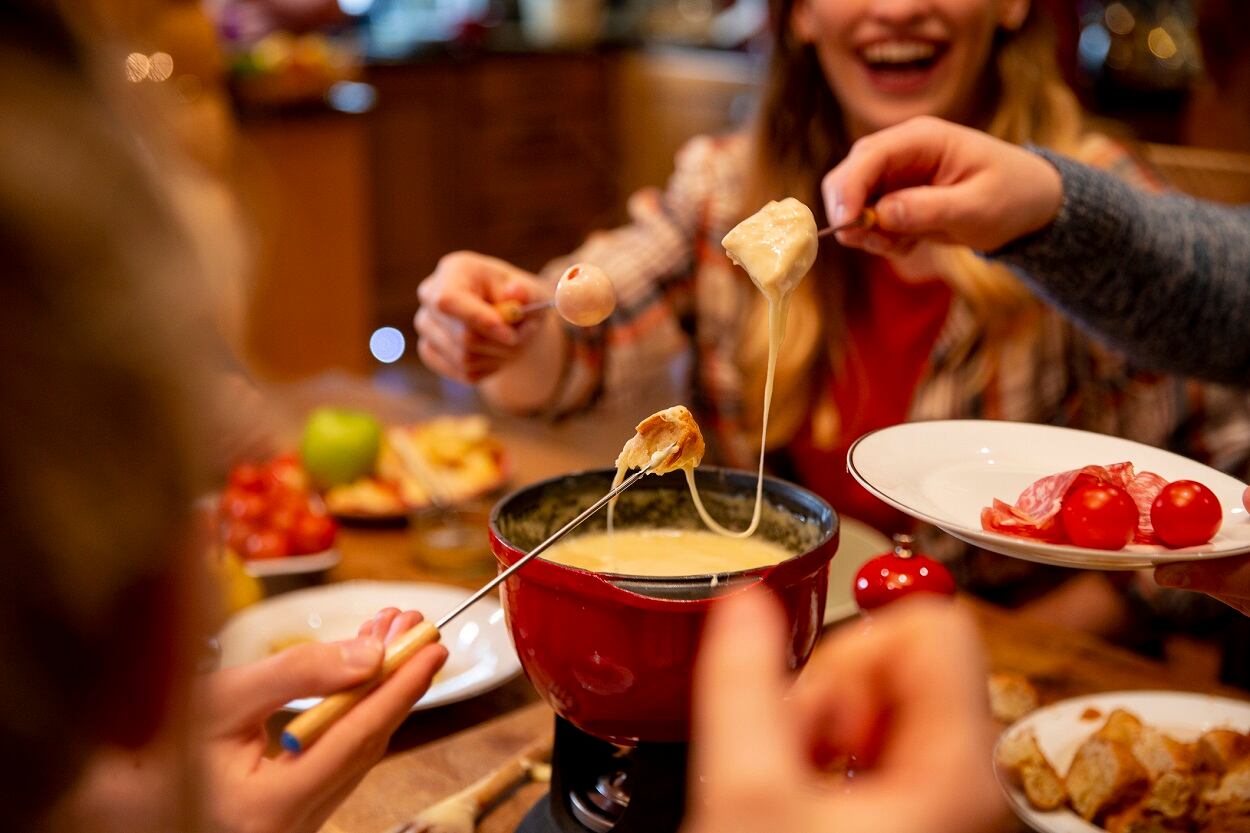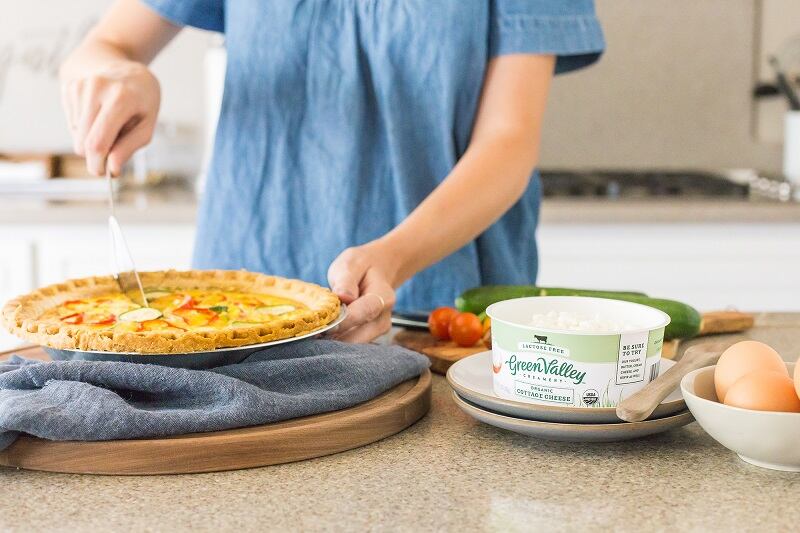The round was supported by significant investment from 301 Inc., General Mills' business development and venturing unit, and Almanac Insights, an early stage CPG investment firm co-founded by David Barber of Blue Hill (a working farm, restaurant, and consulting company supporting agriculture).
Since launching in 2015, the company has registered over 500% growth and is sold nationally in more than 11,000 stores.
According to Clayton Christopher, CAVU Venture Partners co-founder, "Good Culture is the #1 selling cottage cheese at both Whole Foods and Target and the fastest growing cottage cheese across all channels (SPINS)."
To support its accelerated growth and rapid expansion, Good Culture co-founder and CEO Jesse Merrill, said the company is "hyper-focused" on building out an "A team" of industry veterans, recently hiring Kristy Vigil (former VP of sales for Danone North America) and Patrick Jammet (former VP of marketing at Sir Kensington's) to lead its marketing team.
Jesse Merrill founded Good Culture after discovering the healing power food can have when following a specific diet to treat a chronic inflammatory gut disease.

"Our mission is to make healing real foods available to the masses without hurting the planet or animals. And the word 'healing' is key," said Merrill.
In addition to delivering on health and nutrition, Good Culture employs sustainable and regenerative agriculture practices.
"Good Culture's commitment to pasture raised cattle and sustainable farming practices not only results in a better tasting, higher quality product, but it's simply the right thing to do for our planet. And consumers are supportive," added Christopher of CAVU Venture Partners.
'An overlooked superfood'
Good Culture has shown that innovation and category disruption can occur by refreshing familiar products such as cottage cheese by using premium ingredients (organic milk from pasture-raised cows) without additives, and appealing to a new audience, according to Good Culture co-founder and CEO Jesse Merrill.
"Cottage cheese was bigger than yogurt in the '70s and then completely fell off due to lack of innovation," Merrill told FoodNavigator-USA.
"I looked at cottage cheese as an overlooked superfood: Here’s a high protein, low sugar, nutrient dense snack that’s not really being marketed in the right way."
From a nutritional standpoint, cottage cheese contains roughly three times the amount of protein than yogurt (19g of protein in Good Culture's whole milk classic 5.3-ounce cup) and less than half of the sugar (3g per cup).
Pure incremental growth
In most retailers, Good Culture sits alongside cups and tubs of yogurt and other culture dairy products. However, the brand's intention has never been to steal share from yogurt, explained Merrill.
"We may be attracting folks from categories like yogurt, but it’s incremental. Just because someone is eating yogurt today and they’re attracted to cottage cheese because of Good Culture, it doesn’t mean they’ve stopped eating yogurt," said Merrill.
Good Culture has brought incremental growth to the cultured dairy category by attracting new users including millennials and younger Gen Xers.
"We found [according to Nielsen sales data] that we were the only brand that was bringing in new, younger consumer segments into the category; 62% of our dollar sales were coming from these incremental behavior stages outside the category’s core," Merrill said.
Good Culture cottage cheese also fills different day part occasions compared to yogurt which tends to be a breakfast or late morning item, whereas cottage cheese is consumed throughout the day and into the evening hours, according to Merrill.
"It’s completely incremental from an occasion standpoint and that’s exciting because it gives our customers and our partners the ability to grow cultured dairy as a whole," he added.
The potential to grow its household penetration is also a massive opportunity for the brand, according to Merrill.
"When you look at household penetration in cottage cheese vs yogurt: Cottage cheese household penetration is about 45%, yogurt is about 75%, yogurt is an $8bn category, cottage cheese is a $1.1bn category. That speaks to a tremendous opportunity to increase buyer rate."
Extending into other categories
"While we started with cottage cheese, we never once thought of ourselves as strictly a cottage cheese company," Merrill said.

"We think there’s a lot that we can do in terms of category adjacents and cultured dairy. If we look further out, we could probably even go more broad and look at cultured foods as a broader category."
The brand recently launched a sour cream product and 6% fat double cream cottage cheese product to appeal to keto followers.




